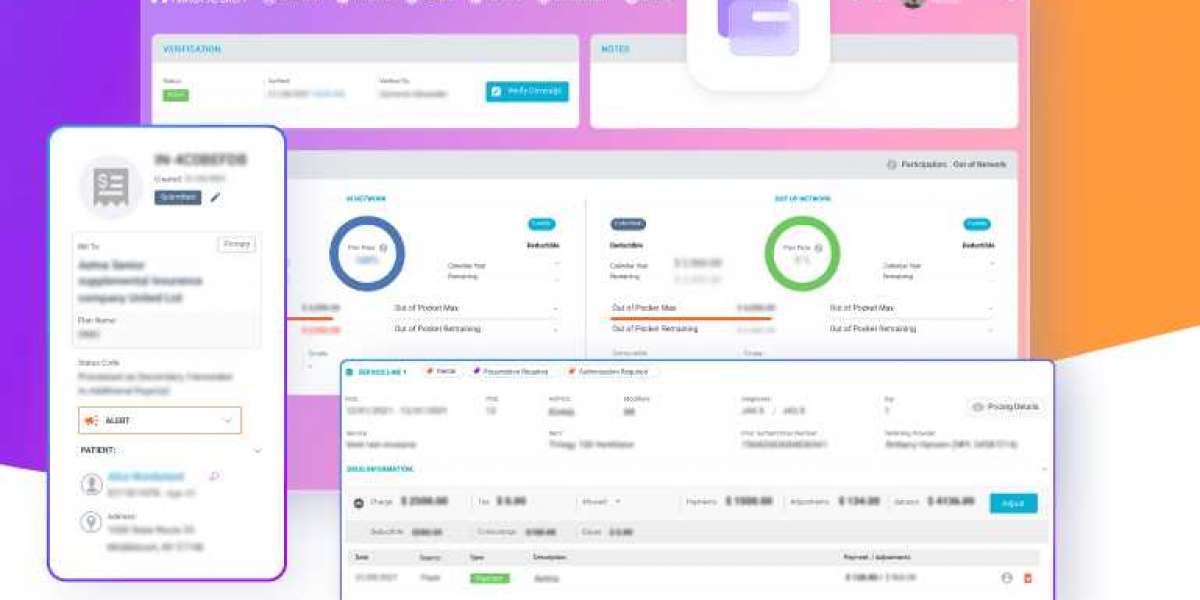What Is RCM Software?
Revenue Cycle Management (RCM) software is a type of healthcare management tool designed to streamline and automate the financial processes involved in patient care. From scheduling and registration to billing, claims management, and final payment collection, rcm software covers the entire lifecycle of a patient’s interaction with the healthcare provider from a revenue perspective.
In simple terms, RCM is the backbone of financial health in a healthcare practice. The software ensures that providers are paid correctly and promptly for the services they deliver.
The Importance of RCM Software in Healthcare
Healthcare organizations face enormous challenges in managing their revenue cycles. Manual processes often result in claim denials, errors in patient data, and delayed payments. RCM software addresses these challenges by:
Reducing errors in billing and coding
Improving cash flow and profitability
Shortening the payment cycle
Enhancing patient satisfaction by providing transparent billing
In the age of digital transformation, relying on manual processes or outdated systems can cripple an organization’s ability to remain financially healthy.
Core Features of RCM Software
The capabilities of rcm software can vary depending on the provider, but several core features are consistent across most platforms:
1. Patient Registration Insurance Verification
Efficient rcm software simplifies the patient intake process by automating data entry and verifying insurance eligibility in real time. This prevents issues down the line related to coverage denials.
2. Medical Coding
The software helps ensure the accurate translation of clinical procedures into standard codes such as ICD-10 or CPT. Many solutions come with AI-driven suggestions that reduce the risk of coding errors.
3. Claims Management
One of the most crucial features, this module handles claims submission, tracking, denial management, and resubmissions. Advanced systems use automated checks to identify and correct errors before claims are sent to payers.
4. Payment Processing
RCM software integrates with various payment gateways to allow easy patient billing, online payment options, and integration with electronic health records (EHR).
5. Reporting Analytics
Dashboards and customizable reports help healthcare providers monitor financial performance, identify bottlenecks, and improve overall efficiency.
6. Compliance Security
Robust rcm software ensures compliance with HIPAA and other healthcare regulations while securing sensitive patient and financial data.
Benefits of Implementing RCM Software
Implementing rcm software is more than just adopting a tool; it’s a strategic decision that impacts every level of the healthcare business. Here are the key benefits:
1. Improved Revenue Collection
By automating billing and minimizing errors, organizations can expect faster reimbursements and a significant reduction in claim denials.
2. Enhanced Patient Experience
Patients today expect clarity and convenience. RCM platforms that offer online bill pay, transparent statements, and timely communication contribute to better patient satisfaction.
3. Operational Efficiency
Automation reduces the burden on administrative staff, allowing them to focus on high-value tasks rather than chasing payments or correcting claim errors.
4. Better Decision-Making
With access to detailed reports and real-time analytics, healthcare executives can make informed decisions to optimize operations and financial health.
5. Scalability
As practices grow, rcm software can scale with them, handling increasing patient volumes and more complex billing processes with ease.
RCM Software in Different Healthcare Settings
RCM software isn’t one-size-fits-all. Different types of providers have varying needs:
Hospitals and Health Systems: Require robust, enterprise-grade systems with integrations to EHRs and other hospital information systems.
Private Practices: Need affordable, easy-to-use platforms that automate everyday billing and coding.
Dental and Specialty Clinics: Benefit from industry-specific solutions that understand unique billing codes and procedures.
DME and Home Health: Require specialized functionality for recurring claims, rental tracking, and compliance documentation.
Choosing the Right RCM Software
When choosing rcm software, consider these factors:
1. Integration Capabilities
Ensure the software integrates smoothly with your EHR, scheduling software, and accounting tools.
2. Customization
Every healthcare provider operates differently. Choose a solution that allows customization to match your workflows.
3. Support Training
Select vendors that offer extensive onboarding, training resources, and responsive customer support.
4. Compliance Standards
Make sure the vendor complies with all applicable laws and standards (HIPAA, HITECH, etc.).
5. Cloud vs. On-Premise
Cloud-based rcm software offers better scalability, remote access, and lower upfront costs, while on-premise solutions provide more control.
Implementation Best Practices
Successfully implementing rcm software requires more than just installing it. Follow these best practices:
Involve All Stakeholders: Engage clinical, administrative, and IT teams early to ensure smooth adoption.
Data Migration Planning: Transfer data from legacy systems carefully to avoid loss or corruption.
Provide Staff Training: Invest in comprehensive training so that your team knows how to use the system efficiently.
Test Before Going Live: Pilot the system with a small team before a full rollout.
Monitor KPIs Post-Launch: Track metrics such as Days in A/R, clean claim rate, and denial rate to measure success.
Common Challenges and How to Overcome Them
Despite the benefits, implementing rcm software comes with potential challenges:
Resistance to Change
Staff may be hesitant to adopt new technology. Mitigate this by involving them in the selection process and offering adequate training.
Integration Issues
Not all systems work well together. Choose vendors with proven integration experience.
Data Privacy Concerns
Ensure that the platform has robust encryption, role-based access control, and regular security audits.
Inadequate Vendor Support
A lack of support during and after implementation can derail your RCM efforts. Choose a vendor with excellent customer service and support track records.
Future Trends in RCM Software
As the healthcare industry evolves, so does rcm software. Here are key trends shaping its future:
1. AI and Machine Learning
AI is increasingly being used for predictive analytics, smart coding assistance, and claim denial prediction.
2. Patient-Centric Billing
Future RCM platforms will focus more on personalized billing experiences, payment plans, and financial assistance tools.
3. Blockchain Integration
Blockchain technology holds promise for enhancing transparency and data security in revenue cycle processes.
4. Mobile Accessibility
With more staff working remotely and patients accessing services digitally, mobile-friendly rcm software is becoming essential.
Top RCM Software Vendors in 2025
Some of the leading rcm software vendors include:
Kareo – Ideal for small practices.
AdvancedMD – Great for midsize practices looking for all-in-one solutions.
Athenahealth – Offers powerful cloud-based solutions.
eClinicalWorks – Popular among large providers and specialty practices.
NextGen Healthcare – Focuses on interoperability and ease of use.
Each has unique strengths, and the best choice will depend on your organization's size, specialty, and specific needs.
Conclusion
In an increasingly complex healthcare environment, rcm software https://nikohealth.com/rcm-software/ serves as a vital tool for ensuring financial viability and operational efficiency. By automating critical processes like billing, coding, and claims management, it not only reduces administrative burden but also enhances patient experience and accelerates revenue collection.
Choosing the right RCM solution and implementing it thoughtfully can yield significant returns in both the short and long term. Whether you’re running a solo practice or a large hospital network, investing in robust rcm software is a strategic move toward sustainable success.







